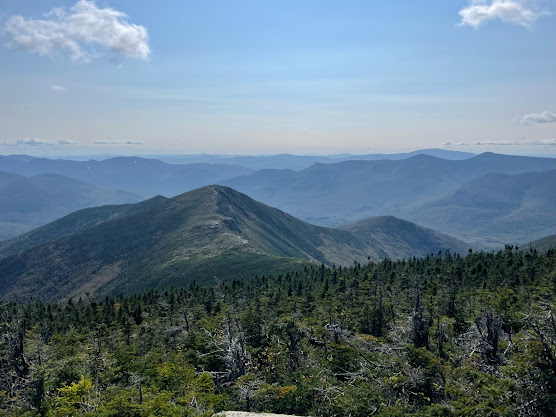Well, I did it. I finally finished Dune. Big, dry, mind-altering. WORMS. This review will serve as my retrospective for all of the books, but I’ll be using Chapterhouse (the 6th and final book) as the springboard since it’s what’s freshest in memory. As a whole, I'd give the series a 3/5 and add that they got progressively worse, or at least progressively less appealing. Simply put, it's a cool series with a lot of interesting ideas, but it's badly written. Ok, maybe it's not badly written (it is), but it definitely doesn't align with my sensibilities. I'm into stories about people, where the thoughts and feelings of the characters resonate with your own, despite differences in space, time, and reality. George R.R. Martin does this very well in A Song of Ice and Fire. Frank Herbert does not. Instead, he somehow managed to write 6 fat novels about religion, politics, heroes, villains, family dynasties, competing cultural forces, and the rise and fall of civilizations across a span of over 5,000 years and several planets, and not create a single damn character I could connect with. I shit you not that I connected more with the protagonist from Tarka the Otter (literally just a book about an otter) than any character in this series.
Anyway, beyond that…I will gladly grant that the themes of the book are interesting and the settings are cool and imaginative. A hostile desert planet featuring giant mysterious sand worms, the life-preserving and enhancing spice, and a mysterious native population adapted to the water scarcity of the desert? It’s a sick aesthetic. And then overlay several culturally distinctive feudal lords (and other interesting powerful groups) deliberately and shamelessly competing for political control over an ecologically unique planet’s invaluable resource, spice. Again, sick. And these are the types of settings that Frank uses to explore cultural power struggles, the interplay of religion and politics, and the influence of ecology on culture. At many times, this is all bundled together into some very compelling and thought provoking stuff. But in many, many other moments it feels unnecessarily dense, a bit contrived, vaguely senile, and overly serious. For me, it’s important to not take yourself too seriously. And Dune takes itself very seriously which is almost endearing if you consider it the output of a very intelligent, possibly autistic boy man who just loves science fiction. But it still wears on you after about 3,000 pages. More charitably, I’ll call the writing tone cool, sober, and intellectual.
Beyond the tone, however, Frank has some serious structural issues. The books are very long and the pacing is atrocious. The vast majority of the chapters are spent inside the head of one (or several, confusingly) characters as they kind of just…stand there or walk around, pointing at various objects in the desert and thinking cryptic academic thoughts like “Here is where the wild things originate, the things we cannot suppress. What daring, to think we can control this. But we must.” (Chapterhouse, page 400). I literally just opened Chapterhouse at random and this was the first passage I saw. Something about a statistically robust argument. Anyway, with pseudo-academic chatter like this filling up a significant majority of the text, the plot easily gets lost. Plus, major plot events regularly occur off page, including the culminating confrontation between Bene Gesserit and Honored Matres at the end of Chapterhouse. What the hell? That’s like if you skipped over Harry’s confrontation with the Basilisk in the Chamber of Secrets. Moreover, major plot lines either go nowhere or somehow end up feeling disappointing. For example, Chapterhouse spends several chapters following Rebecca, a wild Reverend Mother whose plot function ends up being to secretly preserve and pass on the innumerable lifetimes of information stored in the millions of Reverend Mothers who were exterminated on Lampadas...but Rebecca’s moment of glory, when she returns to the central core of Reverend Mothers to transfer this motherload of knowledge back to the Sisterhood, happens in a few paragraphs and is barely acknowledged. Sadly, this is how Frank treats many of his potentially exciting and narratively satisfying plot events and I think that this highlights an important perspective: what Frank valued was, first and foremost, expressing his intellectual thoughts. Not a problem, as long as you’re not concerned with the plot, characters, and overall readability and enjoyability of the book you’re writing.
Anyway, I think that’s all I’ve got. Don’t get me wrong, I don’t regret reading it. It’s an important series in the history of science fiction and I really enjoyed reading the original trilogy, particularly the first and third books. But the last 3 books felt like an academic fever dream. Definitely recommend the videos summarizing the books from Youtuber Quinn’s Ideas. He nails the cool, serious tone and pares it down to the essentials. Far more concise and far more enjoyable than the books. Sorry Frank.




No comments:
Post a Comment